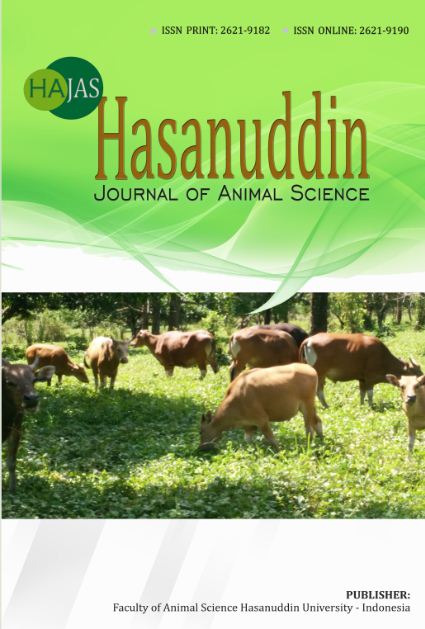The Feed ADF and NDF Digestibilityof Goat Fed Four Difference Diets
DOI:
https://doi.org/10.20956/hajas.v4i1.20192Abstract
Goats generally have the ability to utilize carbohydrate sources from forages in the form of cellulose, hemicellulose, and pectin obtained from plant cell walls. Generally, forage contains relatively high crude fiber content which can be indicated by the contents of neutral detergent fiber (NDF) and acid detergent fiber (ADF) of the forage. The aim of this study was to examine the level of the feed consumption and digestibility of NDF and ADF of 4 different local forages fed to goats. This study was designed based on the Latin Square Design which consisted of 4 dietary treatments with 4 replications in each dietary treatment. A total of 4 male goats, with relatively the same weight and age, were randomly assigned to an individual metabolic cage fed with 4 diets including Elephant grass (R1), Mini elephant (ME) grass (R2), Panicum maximum (PM) grass (R3) and Brachiaria decumbens (BD) grass (R4). Each diet added 20% of rice bran. The results indicated that a diet containing Mini elephant grass had relatively higher digestibility of ADF and NDF compared to that of the other 3
diets. In contrast, a diet containing Panicum maximum grass had lower ADF and NDF digestibility than other diets. In conclusion, adding rice bran to the diet based on Mini elephant grass, Elephant grass, and BD grass resulted in higher ADF and NDF consumption and digestibility compared with a diet based on PM grass.
Keywords: Digestibility, NDF, ADF, local grasses, goat.
Downloads
Published
Issue
Section
License

This work is licensed under a Creative Commons Attribution-NonCommercial 4.0 International License.











